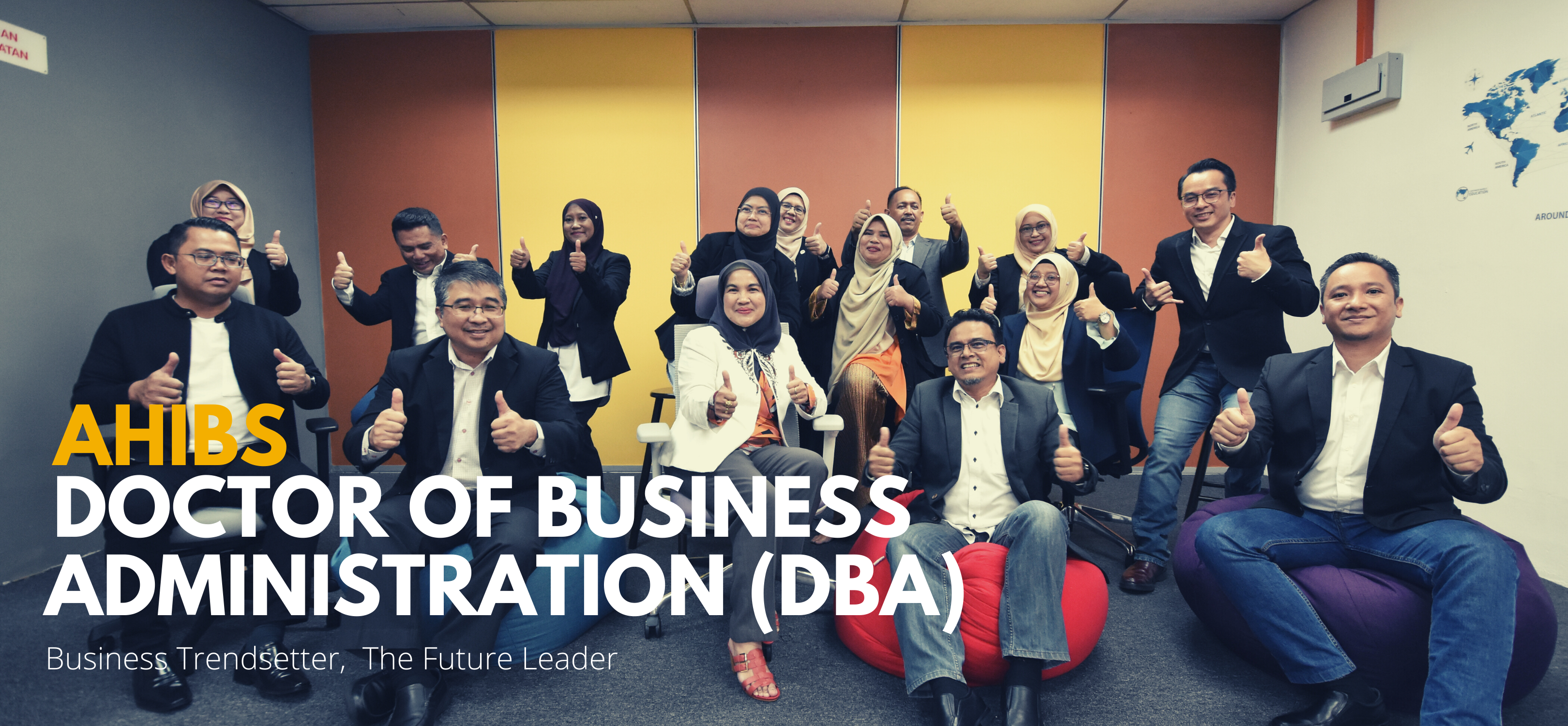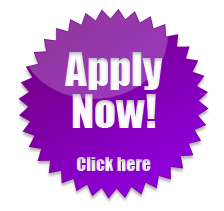
Program Learning Outcome
At the end of the program, students will be able to :
- Critique theories and concepts in business administration.
- Demonstrate mastery research skills related to industrial-based issues with minimal supervision.
- Refine theories and concepts in the business environment decision making process using scientific and critical thinking skills.
- Integrate professional ethics in research to organizational management.
- Evaluate situations and react effectively and responsibly in intellectual discourse and in schorlarly publications.
- Analyze and adapt advanced business knowledge independently and effectively through innovation research.
- Display the ability to work effectively in a team.
- Demonstrate leadership qualities in the business environment.
- Strategize opportunities for organizations through enterprising initiatives.
- Integrate professional ethics in research and demonstrate socially responsible behaviour related to organizational management.
Admission Requirements
- Master’s Degree with CGPA >= 3.50 from UTM or other institutions approved by senate, or
- Master’s Degree with CGPA >= 3.00 plus a minimum of 5 years working experience.
- An English Certificate of IELTS/TOEFL with a score of 6.0/550 for international students.
- Relevant working experience is highly preferred.
Duration of Study
| Full Time |
|
Minimum: 3 years
|
|
Maximum: 8 years
|
- CORE COURSES
- RESEARCH SKILLS
- CONCENTRATION – BUSINESS INNOVATION
- DISSERTATION
- UNIVERSITY ELECTIVE COURSE
(18 credits)
Pre-Requisite Course(s): None Synopsis: This advanced course concentrates on how technological innovation can be managed to gain a competitive advantage for business organizations, which have to compete with both private and government. Innovation is important for both business organizations and individuals (managers, management and support staff) as it applies to business equipment, processes and business operations. The course also focuses on different dimensions of innovation including process and service innovation, developing new services based on demand and improving the way the existing services are delivered. Pre-Requisite Course(s): None Synopsis: This course aims at critical evaluation of the contemporary concepts and tools for effectively marketing an innovation. In innovation-driven economy, everyone in the organization must have a market focus in order to successfully align the company and its products with the needs of the marketplace. To create sustainable competitive advantage, an innovation would require a distinctive approach to planning and implementing marketing strategy based on their relevant marketing mix including price, delivery, product offer and the controversial legal specification of using promotional mix in the marketing of selected services. The emphasis is on the analysing the impact of innovation on their dynamic market changes and then tailoring marketing goals and strategies accordingly. New innovation in marketing from new tools to how people rethink how to get their messages out is also emphasized. Pre-Requisite Course(s): None Synopsis: Business organizations are torn between effective business service for consumers and organizational profitability. This is pertinent in view of the need to strategize their operations within the competitive business market, especially for private businesses. This course focuses on contemporary issues in accounting and finance. Its main aim is to provide advanced knowledge and develop a framework of how these issues are relevant and affect business operations. Participants will interpret financial statements and analyse the implications for their organizations. They will also analyse various costing concepts and methodologies to help build awareness on the importance of cost and profit. They will also be equipped with advanced knowledge of financial management as it relates to the overall strategy of business organizations. This involves identification of financial decisions, evaluation of problems and deriving effective strategic financial moves. Pre-Requisite Course(s): None Synopsis: This course shows what challenges do managers face as they seek to make R&D serve the needs of the corporation in an increasingly competitive global marketplace. This course focuses on managing R&D in a corporate environment from both strategic and tactical perspectives. Participants will evaluate how technology is used as a powerful tool of competitive advantage and growth. Pre-Requisite Course(s): None Synopsis: Business innovation and growth strategies are vital in creating new business opportunities. This course focuses on the underpinning theory of innovation, technology and wealth creation, innovation and strategy, technology and business strategy, generating growth strategy and taking action in your firm.Advanced Technology Management and Innovation
Marketing Innovation
Accounting and Finance for Decision Making
Research & Development Management
Business Innovation & Growth Strategy
Independent Study Project
(9 credits)
Pre-Requisite Course(s): None Synopsis: Scholarly academics focus on creating a contribution to theory. Their concern is to resolve controversy in known theory and develop research to enlighten the gaps. Practitioners, however pursue problems currently encountered by organizations, through endeavoring fresh or revised interventions, deemed practical. This process encapsulates the pre- and post-intervention situation. In both situations, both require a Literature review and Conceptual Design. In traditional PhD, the Literature Review functions to spot the theoretical gaps/controversies. For DBA, literature review anchors the process of understanding what the research literature has to say about a specific situation, faced by the organization or researcher. This is then applied to define expected versus achieved results. Hence, this course generally aims to support students to 1) contribute to both theory and practice in relation to business, and 2) develop professional practice and profess knowledge acquisition. The course offers students to attain ability in doing a systematic literature review to arrive at the conceptual design, appropriate for a doctoral of business administration thesis. Pre-Requisite Course(s): None Synopsis: In this course, participants evaluate real world phenomenon from different methodologies in qualitative and quantitative research. Participants will apply qualitative data analysis software to manage voluminous qualitative data. Besides qualitative analysis, participants are also trained in quantitative techniques in business research with particular emphasis on computer applications. Pre-Requisite Course(s): None Synopsis: This course equips participants with the skills in undertaking research process and a variety of research methodologies, designs and approaches for the complex task of building and extending knowledge in business. Participants will design a concrete conceptual framework for scholarly research that will produce a significant contribution to the generation of new knowledge in the related field. The course will also guide participants in the formulation of the research questions, determining theories that underpin the research, adopting, modifying a conceptual framework based on the extant literature and formulation of hypotheses. Participants will apply appropriate research methods and design to produce a quality research proposal.Literature Review & Conceptual Design
Quantitative & Qualitative Analysis
Research Methods for Business
(12 credits)
Pre-Requisite Course(s): None Synopsis: This doctoral seminar is designed for doctoral students interested in carrying out research on topics related to designing innovation strategies. The theme of the course is that organizations possess several unique characteristics that require a distinctive approach to innovation strategy. The course focuses on improving innovative capabilities and designing strategies for sustainability. Participants synthesize specific literature on innovation strategies and lead discussion on these topics in forums for intellectual discourse. Pre-Requisite Course(s): None Synopsis: This doctoral seminar is designed for doctoral students who intend to work in the digital economy. It provides an in-depth knowledge of the tools and techniques for digital marketing. This course focuses on the latest developments in digital and data-based marketing. The course structure provides a comprehensive examination of integrated marketing communications and consumer behaviour. It also explores Web Marketing and its metrics and evaluation, focusing on both theoretical concepts and practical marketing skills. Participants synthesize specific literature on digital marketing and lead discussion on this field in forums for intellectual discourse. Pre-Requisite Course(s): None Synopsis: Today’s business environment requires an unprecedented degree of innovation and agility. Today’s leaders must develop and implement effective business strategies while maintaining drive, morale, motivation, innovation, and vision in their people and in their organizations. Participants will learn strategies for setting and maintaining the direction for renewal, for boosting learning and innovative thinking, for turning resistance into cooperation, and for extracting maximum benefit from new opportunities. Topics include scientific discovery, innovation search, organizational learning, evolutionary approaches, and incremental and radical change. Participants synthesize specific literature on innovation and strategic change and lead discussion on relevant topics in forums for intellectual discourse. Pre-Requisite Course(s): None Synopsis: As the business world flourish and as society become highly innovative, here is a growing need of tackling issues such as human well-being; security; and climate change. The course allows the participants to evaluate the awareness of governments, businesses and others in responding to these challenges. Participants will critically analyse the relationships and potential conflicts between the challenges and proposed responses through different perspectives. Participants synthesize specific literature on corporate social responsibility and sustainability management and lead discussion on relevant topics in forums for intellectual discourse. Pre-Requisite Course(s): None Synopsis: This course allows participant to evaluate the elements of work, technology and organization and their complex interactions in an organization. Participants also analyze issues on integration across the three levels of employee, team, and organizational behavior that affect performance. Participants synthesize relevant literature on individual-, group-, and organizational-level behavior and lead discussion on those topics in forums for intellectual discourse. Pre-Requisite Course(s): None Synopsis: This course presents the latest theory and practice of Knowledge Management (KM) relevant for knowledge-based economy. It focuses on integrated interdisciplinary perspectives of computer science and business arising simultaneously from artificial intelligence, information systems, and organizational behaviour. It covers the “hard” components of computer technology for managing knowledge, without losing sight of the “soft” management needs and challenges in leveraging knowledge effectively. Participants critically evaluate the nature of knowledge and its computer representation, access, and utilization versus information within a human context. Participants synthesize relevant issues on knowledge management and lead discussion in this area through forums for intellectual discourse. Pre-Requisite Course(s): None Synopsis: The course analyses the role of creativity and innovation in modern organizations. The philosophy of the course is that every problem is an opportunity for a creative solution. With this in mind, students are encouraged to try new approaches to creative problem solving in many different environments. In each class we focus on a different variable related to creativity, such as team dynamics, creativity under pressure, or managing creative individuals. The class is designed in such way to help the students to explore the variables that stimulate and inhibit creativity and innovation in individuals, teams, and organizations. Many techniques will be used in the class to fulfil the objectives of the course, including classroom activities, case studies, team projects, review papers, and expert classroom visitors. Pre-Requisite Course(s): None Synopsis: One of the key factors for companies to sustain long-term growth is productivity. Productivity can be enhanced through technology. This course analyzes the role of technology in improving productivity in modern organizations. Participants synthesize patterns and sources of technological changes for improvement of productivity. Participants evaluate and recommend solutions to issues such as determinants of productivity and technology diffusion, productivity and growth. Participants lead discussion in this area through forums for intellectual discourse.Doctoral Seminar in Designing Innovation Strategies
Doctoral Seminar in Digital Marketing
Doctoral Seminar in Innovation & Strategic Change
Doctoral Seminar in Exploring Opputunities for Social Responsibility & Sustainability
Doctoral Seminar in Work, Technology & Organization
Doctoral Seminar in Knowledge Management
Doctoral Seminar in Creativity & Innovation
Doctoral in Improving Productivity through Technology
| DISSERTATION |
| Dissertation (approximately 40,000 to 50,000 words) |
CURRENT STUDENTS
For more information about the admission process, please contact:
| pgrad@utm.my | |
| Telephone | +6075537900 |
| Website | admission.utm.my |
To know more about the programme, please contact:
| Name | Dr Theresa Ho Char Fei |
| hctheresa@utm.my | |
| Telephone | +603-21805046 |
Any inquiry about course registration, please contact:
| Name | AHIBS KL Academic Office |
| academic.ahibs@utm.my | |
| Telephone | +603-2180 5023/5024/5025 |




